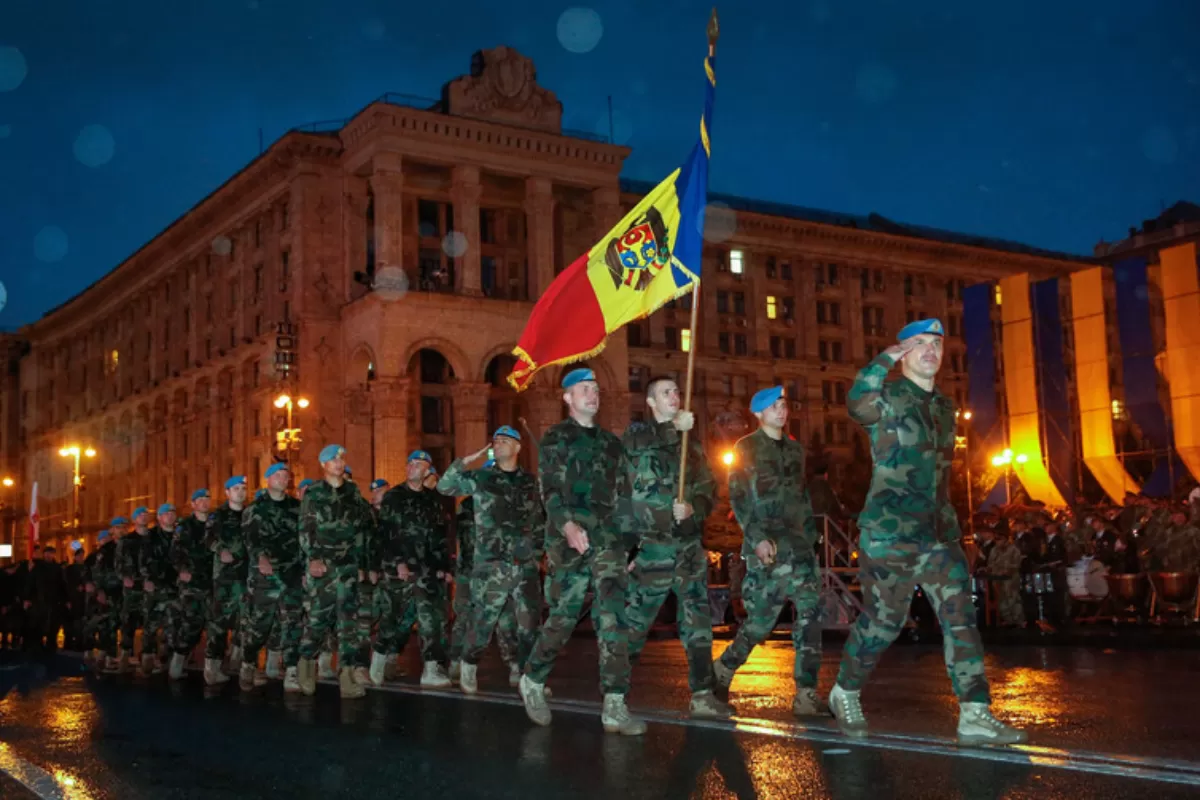
According to comments quoted by media outlets in the Republic of Moldova and Russia, President Maia Sandu promotes NATO’s interests in the region and is purportedly preparing, together with the North Atlantic Alliance, a military conflict with the Transnistrian separatist region. The comments started from a meeting on a NATO initiative, which was also attended by the President of the Republic of Moldova.
NEWS: "Maia Sandu needs NATO for a war with Transnistria", headlines the Russian-language portal bloknot-moldova.md which, like other web pages in the Republic of Moldova and Russia, as well as the "Antimaidan 2.0" telegram channel, quotes Boris Shapovalov, presented as a Doctor of Philosophy.
He comments on his Facebook page that Maia Sandu allegedly serves the interests of NATO and supports the anti-Russia policies of the North-Atlantic Alliance.
"Is it clear to you now who pushed Sandu into the presidential seat? Who does Sandu intend to fight and whom to defend from, if she promotes the interests of the NATO military bloc? The answer is clear… to NATO, Russia is the enemy. Respectively, it will not be easy for Transnistria either. Doesn’t the President of Moldova have more important problems than the modernization of the army? Why would we need such a president who mistakes the interests of the country and of the people for NATO's militaristic plans? ”Media outlets quoting the comment also write that Maia Sandu is "openly lobbying NATO's interests", citing as evidence the fact that she talked to the NATO Secretary-General Jens Stoltenberg, and NATO supports her intention to evacuate the Russian peacekeepers from the Transnistrian region.
NARRATIVES: 1. Maia Sandu supports the Republic of Moldova’s NATO accession. 2. Maia Sandu purportedly supports an action plan against the separatist region of Transnistria, with NATO support.
LOCAL CONTEXT / ETHOS: The North Atlantic Alliance is still presented as a scarecrow to a large part of the population of the Republic of Moldova, which views it through the prism of Soviet propaganda and, more recently, of the Russian Federation.
The risk posed by Moldova’s accession to NATO or by the settings up of NATO military bases on the territory of the Republic of Moldova is frequently invoked by pro-Russia politicians in Chisinau, although the prospect of accession has never been officially addressed.
The Republic of Moldova is a neutral state, according to its Constitution. This provision is challenged by some right-wing politicians, but, according to opinion polls, most citizens are in favor of maintaining the current status and only 20-25% would vote for NATO membership.
Although Russia insists on maintaining neutrality, it refuses to evacuate an ammunition depot and a military contingent on the left bank of the Dniester, a region controlled by a secessionist regime.
PURPOSE: To invoke the danger of a war in which Maia Sandu would involve the Republic of Moldova. To suggest that Maia Sandu is a supporter of Moldova's accession to NATO, an option that is not popular.
WHY THE NARRATIVES ARE FALSE: The quoted expert's comment started from Maia Sandu’s participation in the coordination meeting of the Defense Capacity Building Initiative. The initiative, launched in 2015 by NATO for countries that are not members of the Alliance, entails an expertise and assistance package for the development and modernization of National Armiess.Maia Sandu said that she would support the Ministry of Defense's efforts to increase the budget for modernizing the army and increasing salaries but stressed however that the priority was the efficient use of public money, according to a statement issued by the Presidency.The event is presented by the Ministry of Defense, led by Victor Gaiciuc, a close associate of the former president and leader of the Socialist Party, Igor Dodon, approximately in the same terms. In fact, Igor Dodon, who declares himself against the accession of the Republic of Moldova to NATO, during his term as president, held several official discussions with the leadership of the organization, which has repeatedly stated that it respects the Republic of Moldova’s status of permanent neutrality.Moldova's collaboration with NATO began in the 1990s, and one of NATO's most important projects was the evacuation of significant amounts of pesticides left over from the Soviet period that posed a danger in terms of environmental pollution and soil and water poisoning.Even if the Republic of Moldova would like to give up neutrality and ask to join NATO, it is unlikely to be accepted with an unresolved territorial conflict, a foreign military presence on its territory and with one of the smallest defense budgets in the world, accounting for less than 0.4% of the GDP.
GRAIN OF TRUTH: Maia Sandu did attend the coordination meeting of the Defense Capacity Building Initiative.
THE NARRATIVES BENEFIT the Party of Socialists – to discredit Maia Sandu, and Moscow – to feed anti-NATO phobias.


